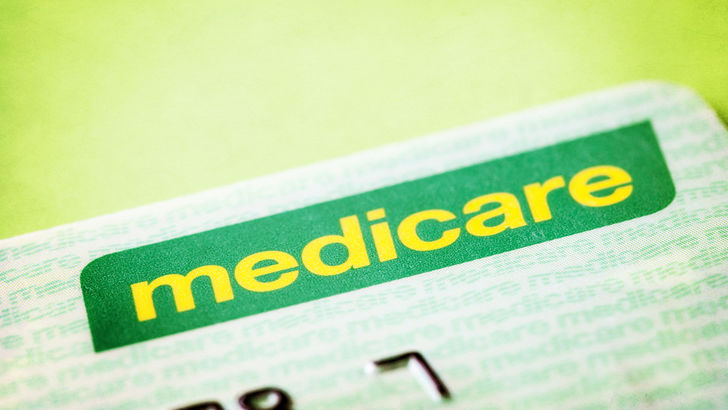9 major tax, property and financial changes coming in 2024
By Tom Watson
The new year has arrived and with it comes a host of changes that will impact everything from the tax rate many Australians pay to the amount of superannuation they receive.
Here are nine major changes that are already starting to take effect, or which will kick in throughout 2024, that are worth knowing about.
1. Austudy and Youth Allowance payments
Starting: January 1
Elsewhere on the indexation front, hundreds of thousands of Australians will start to receive a 6% increase in their Austudy, Disability Support Pension (under 21) and Youth Allowance payments after new payment rates came into effect on January 1.
Fortnightly payments will increase by between $36.20 and $45.60 for those on Austudy, between $22.40 and $45.60 for those receiving Youth Allowance and between $31.10 and $44.90 for Disability Support Pension recipients below the age of 21. The government also says that 600,000 carers will see their Carer Allowance increase by $8.70 a fortnight.
2. Pensioner Work Bonus limits
Starting: January 1
Eligible pensioners will be able to earn more income without having their pension reduced following the government's decision to permanently increase the maximum Work Bonus income bank balance limit to $11,800. The balance had originally been set to fall back to $7800 from January 1.
Pensioners can currently earn up to $300 in income each fortnight without it being counted under the pension income test. That means, for example, that when also taking the pension income free area into account, a single pensioner can earn $504 a fortnight while still receiving the maximum pension.

3. Medicare Safety Net thresholds
Starting: January 1
The amount that Australians will need to spend on out of hospital expenses before they qualify for a reimbursement under the various Medicare Safety Nets has increased.
The Medicare Safety Nets thresholds are indexed in line with the Consumer Price Index, so as a result of inflation, the Original Medicare Safety Net threshold rose from $531.70 to $560.40 on January 1.
So too did the Extended Medicare Safety Net ($2414 to $2544.30) for non-concession cardholders and the Extended Medicare Safety Net ($770.30 to $811.80) for concession holders and families that are eligible for the Family Tax Benefit Part A.
4. Victorian land tax surcharge
Starting: January 1
A temporary land tax surcharge has been introduced in Victoria which will increase the amount of tax payable on landholdings, though family homes are exempt.
The initiative, which is planned to run for the next decade, will see taxable landholdings valued between $50,000 and $100,000 attract a $500 surcharge and those between $100,000 and $300,000 attract a $975 surcharge. For landholdings valued over $300,000 a $975 flat surcharge and a 0.10% land tax increase will apply.

5. Electric vehicle rebates
Starting: January 1
Would-be electric vehicle (EV) buyers in both New South Wales and South Australia will no longer be entitled to a $3000 rebate after both states ended their respective incentives.
EV purchases made up to the December 31 deadline (including putting down a deposit) will still be eligible for the $3000 rebate, though in New South Wales the vehicle will need to be registered and the rebate application made by June 30.
Dedicated electric vehicle rebate schemes are still operating in Queensland ($3000 to $6000 available) and Western Australia ($3500 available).
6. Reserve Bank schedule
Starting: February 5
Following on from the government's review of the Reserve Bank of Australia last year, there will be a new look schedule for Reserve Bank Board monetary policy meetings starting at the first meeting of 2024 on February 5.
Rather than 11 meetings a year held on the first Tuesday of every month (aside from January), the Board will now meet eight times each year and the meetings themselves will be spread out over a Monday afternoon and Tuesday morning before a decision is announced on Tuesday afternoon.
For homeowners with a mortgage one expected benefit of the new schedule is less frequent home loan rate changes, though there's nothing stopping lenders lifting or dropping their rates between meetings.
7. Stage three tax cuts
Starting: July 1
Barring any last-minute surprises, the much-discussed stage three tax cuts will finally come into effect on July 1 which will have an impact on the amount of tax many Australians will pay going forward.
There are currently five tax brackets (including the tax-free threshold), but this will be cut to four from July 1 when Australians earning between $45,001 and $200,000 will be merged into a single bracket with a 30% tax rate rather than the existing 32.5% or 37% tax rates that apply for incomes in that range.
Additionally, the income threshold for the highest 45% tax rate will be lifted from $180,001 to $200,001.
8. Superannuation guarantee rate
Starting: July 1
Many Australian workers will receive another increase in the regular superannuation contributions they receive from their employers when the Superannuation Guarantee rate is increased from 11% to 11.5% from the start of the new financial year (July 1).
This will be the latest annual uptick in the rate which has risen in 0.5% increments from 9.50% in 2021 and is scheduled to reach 12% in July 2025.
9. Help To Buy scheme
Starting: TBC
While there's no official start date yet, the federal government has indicated that its new Help To Buy scheme will be up and running this year once the states pass the legislation needed to participate.
What is Help To Buy? It's a shared equity scheme in which, in order to help homebuyers enter the market, the government will provide an equity contribution of up to 30% of the value of an existing home or 40% of a new home.
The government says that the scheme will assist 40,000 low and middle income families to purchase a property, though applicants will need a minimum 2% deposit and it's anticipated that the contribution will either need to be paid back over time or when the home is sold.
Get stories like this in our newsletters.



